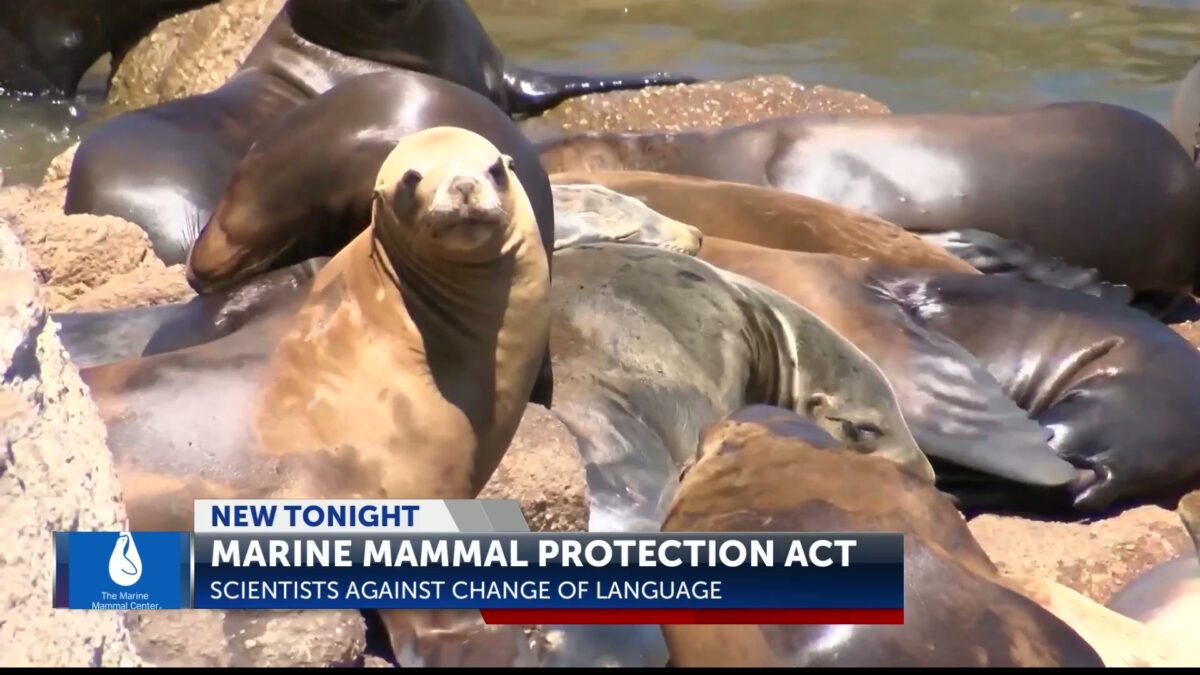The Marine Mammal Protection Act under threat due to proposed reauthorization bill

Jeanette Bent
MONTEREY, Calif. (KION-TV) — The U.S. House of Representatives Subcommittee on Water, Wildlife and Fisheries met Tuesday to consider a proposed draft bill that would change language in the Marine Mammal Protection Act.
The Marine Mammal Center in Sausalito saying that this could gravely jeopardize the act that has protected whales, dolphins, sea otters, sea lions and other marine mammals from harm — and even extinction — over the past 50 years.
“There’s language in the Marine Mammal Protection Act that is around mitigating and minimizing harm, minimizing takes of marine mammals,” said Doctor Jeff Boehm, Chief External Relations Officer for the Marine Mammal Center. “All of that language is being torn up and the protections that will be left that would be afforded marine animals will be negligible.”
The language, according to Dr. Boehm, is “dramatically different, basically taking the floor and dropping it to almost non-existent.”
The decision to modernize language in the act brought to congress by former U.S. Alaskan Senator Mark Begich.
“The Marine Mammal Protection Act has been in place for over 50 years, and during that time it served an important role in conserving marine mammals and protecting our oceans,” said Begich. “But, as the decades have passed, we’ve also seen how its implementation, particularly in the use of vague or overly precautionary standards, has led to confusion, delay and unintended harm.”
This comes as Dr. Boehm says, is terrible timing.
“Just a couple of years ago, we were celebrating what this — then — 50-year-old act had brought us. We have rebounded species of animals,” said Dr. Boehm. “The timing is wrong, the intent is wrong… this act has been a model that has kept any marine animal from going extinct in U.S. waters.”
During the meeting, politicians heard from supporters as well as people and institutions opposing the language change, saying that regardless of the outcome, negotiations and continued discussion are necessary.
Also during the meeting, politicians read dozens of letters from scientific institutions opposing the draft.
The subcommittee deciding to continue the discussion during a future meeting.